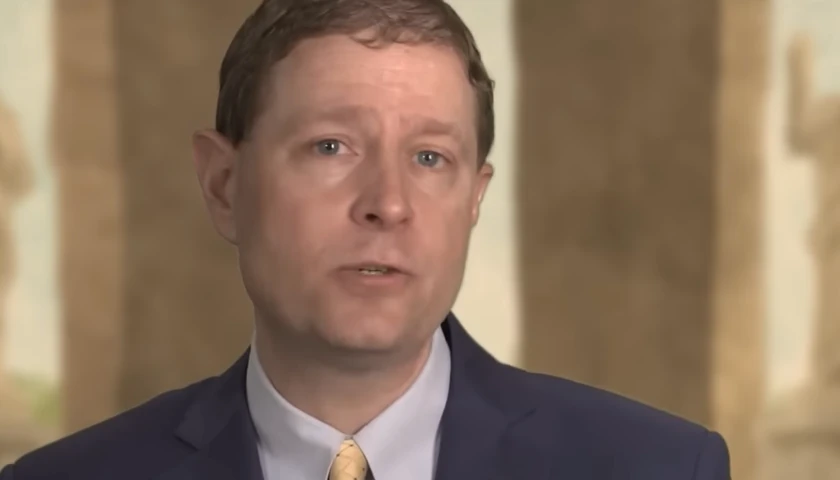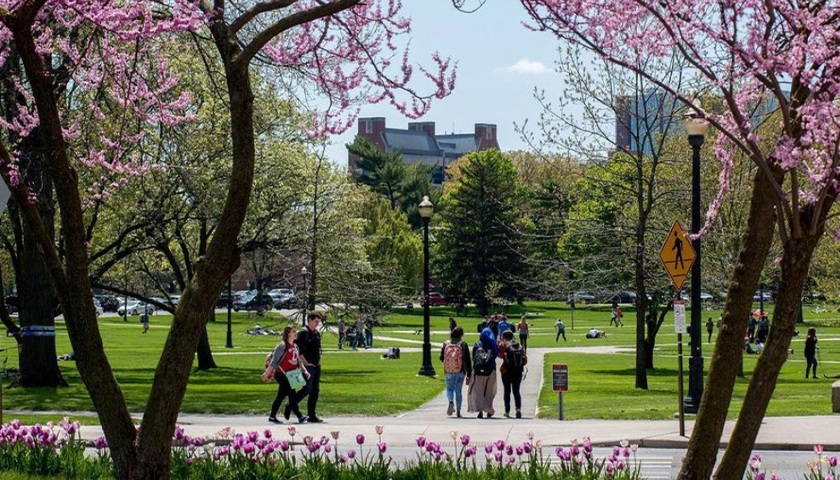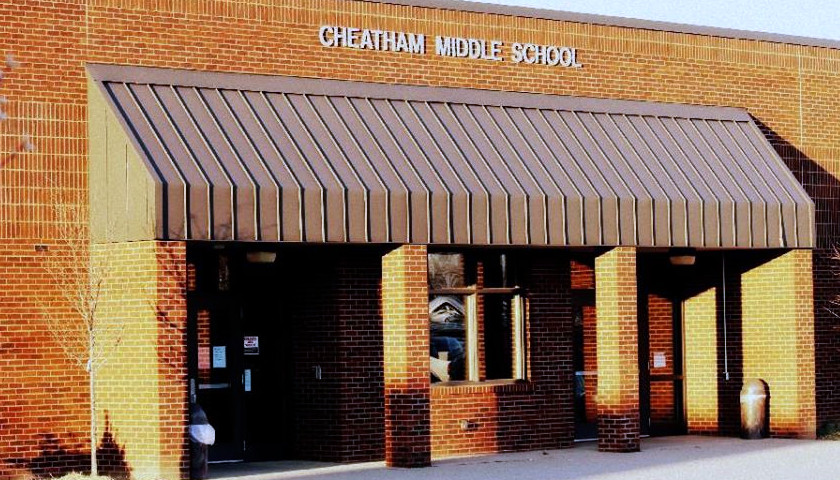by Morgan Kromer
A new civics center at Ohio State University will help students learn how to “engage with fellow citizens in a civil way,” according to the director.
Former University of Toledo Professor Lee Strang is now at Ohio State University to lead the Salmon P. Chase Center for Civics, Culture and Society. It is one of five new “intellectual diversity” centers at public Ohio universities that are in the works.
Strang (pictured above) regularly writes and comments on the legal philosophy of originalism, according to his curriculum vitae. He shared his vision for the center in a recent phone interview with The College Fix.
The law professor divides the center’s key concepts into three parts — knowledge, skills, and disposition.
“Having the ability to engage with fellow citizens in a civil way, in a productive way across those differences, is important. It’s actually a necessary skill for our political community to continue to flourish,” said Strang, who had helped advocate for the creation of intellectual diversity centers.
Knowledge is using academic learning to become an informed citizen, Strang said; he wants students to see themselves as part of a “common enterprise.”
“That disposition is actually the disposition of seeing yourself as part of a common enterprise, a common project that began somewhere around 1776, and continues today,” Strang said in the telephone interview.
The Chase Center was originally introduced as a bill in the Ohio State Senate — Senate Bill 117, which explained OSU’s need for intellectual centers such as this one.
Some likely classes are “Civil Discourse” and “Landmarks of the U.S. Supreme Court,” according to Strang.
He emphasized the role of debate nights, informal dinners and research conferences, as already held by Strang’s current center, The Institute of Constitutional Thought and Leadership.
“[The center] includes dinners, kind of informal dinners of conversation. So, one of the things that higher education should be for young people is the opportunity to have deep and rich conversations with friends, with new people who become your friends over food and drink,” Strang said.
Strang said these dinners and debate nights helped people have a more respectful approach to civics.
“[Participants] came away seeing each other as fellow citizens with whom they disagree in a common project,” Strang said.
Study abroad programs are also under consideration.
“Some of the existing centers have study abroad programs at places like Oxford, which would be great, and that’s something that we’re considering,” Strang said
The center plans to hire about eight to 10 faculty by the fall semester of 2025, continuing to hire the same number again the next year after further establishment.
The center is not without criticism.
“The configuration of these centers lack shared governance and invite political interference,” Sara Kilpatrick told The Fix via email.
She is executive director of the Ohio American Association of University Professors.
“There are also unanswered questions about how these centers are supposed to operate in an independent manner while also integrating into the existing university structures,” Kilpatrick said.
A University of Cincinnati professor also opposed the creation of new centers in May last year.
Ohio AAUP representative Stephen Mockabee said: “Ohio’s institutions of higher education are already open marketplaces of ideas where free inquiry is ongoing.”
“In addition to problems with governance, it appears that the topics mentioned in the legislation (‘historical ideas, traditions, and texts that have shaped the American constitutional order and society’) are largely covered by courses in political science and history that already exist at many universities,” Mockabee said in a recent email to The Fix.
“At a time when budgets are stretched thin due to lack of state support, it seems unwise to create more duplication,” the University of Cincinatti professor said.
Ohio State University Professor Richard Fletcher also criticized the creation of the center, noting Strang’s role in advocating for it.
“I am all for more Faculty being hired, but I am concerned that the illegitimate & politically motivated origins of the Center will undermine their work & standing at the university,” Fletcher said in his email to The Fix.
“But I could be wrong!”
– – –
Morgan Kromer is a contributor at The College Fix.
Image “Professor Lee Strang” by The Federalist Society.





